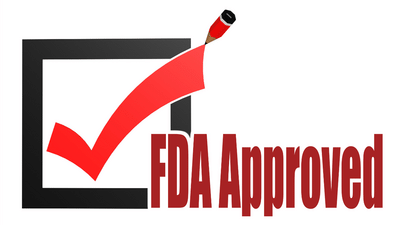The U.S. Food and Drug Administration (FDA) has made a major move in heart health care by approving Rybelsus , the first oral GLP-1 receptor agonist , which helps to manage cardiovascular risks. Up until now, Rybelsus was known as a diabetes medication and was only taken in cases of increased blood sugar levels, in adults with type 2 diabetes. But with this new approval, its use has been expanded to include people who are at risk of already living with cardiovascular diseases, marking a big step towards preventative health care and treatment accessibility.
Since heart diseases are on the rise, this approval became necessary, and it represents a significant advancement in modern medicine. Rybelsus is also known as oral semaglutide, which is a needle-free solution for those seeking to improve cardiovascular health , while also supporting blood sugar and weight management.
How Rybelsus works
This medication belongs to a class of medications known as GLP-1 receptor agonists. These drugs mimic the natural hormone GLP-1, which plays a key role in controlling blood sugar, managing appetite and digestion. Beyond the usual metabolic effects, which most of the medications have, new research has uncovered Rybelsus's protective effects on heart and blood vessels as well.
The two major drivers of heart attack- oxidative stress and arterial inflammation- Rybelsus works to reduce both of these culprits and improves endothelial function, which is the health of the inner lining of blood vessels, critical for maintaining smooth blood flow and preventing blood clot formation. Studies show that GLP-1 receptor agonists can make platelets (the tiny blood components responsible for clotting) less sticky, reducing the risk of dangerous clots that can block arteries. Additionally, the drug has lipid-lowering effects, helping to reduce LDL (bad) cholesterol and triglycerides, and mild diuretic properties that help the body manage fluid levels, and is beneficial for individuals with heart failure or high blood pressure.
Oral vs injectable: What is the difference
This name might sound familiar. Before the invention of Rybelsus, semaglutide was only available in an injectable form, widely known under the brand name Ozempic. Now both Rybelsus and Ozempic contain the same active ingredient and work through the same mechanism, but the key difference lies in how they are delivered. For example, injectable GLP-1 delivers the medication directly into the bloodstream, which allows for more efficient absorption and typically fewer gastrointestinal side effects. The oral version, however, passes through the digestive tract and the liver, where part of the medication is broken down, even before it enters the bloodstream. Because of this, rybelsus requires a higher dosage to achieve similar effects to the injectable format. It has been reported that some users may experience more stomach-related side effects, such as nausea, bloating, or decreased appetite, especially when the initial treatment begins.
Why did this approval matter

The FDA’s decision to approve Rybelsus for cardiovascular health marks a turning point in how heart disease may be managed in the future. Traditionally, cardiovascular disease treatment has relied on lifestyle changes, cholesterol-lowering drugs (like statins), and blood pressure medications. While these remain essential, GLP-1 medications offer an entirely new approach, one that targets the underlying metabolic and inflammatory processes that contribute to heart damage.
Chronic inflammation is increasingly recognised as the key driver of atherosclerosis, the buildup of fatty plaque in the arteries that leads to heart attacks and strokes. This drug works by reducing systemic inflammation. Rybelsus helps protect the arteries and slow plaque progression, so dual benefits!
Research behind this decision

The active trial on Rybelsus, published under the National Library of Medicine, under the title, "Clinical Trial of Rybelsus (Semaglutide) Among Adults With Alcohol Use Disorder (AUD)" Clinical trials have shown that GLP-1 receptor agonists significantly reduce major cardiovascular events, including heart attacks, strokes, and cardiovascular deaths. These benefits were first demonstrated in studies involving injectable semaglutide, and subsequent research suggests the oral form, Rybelsus, provides similar outcomes when taken consistently under medical supervision.
Potential side effects to consider
While Rybelsus offers promising cardiovascular benefits, it’s not without potential downsides. The most common side effects include nausea, diarrhea, constipation, and abdominal discomfort, particularly when first starting the medication. These effects often lessen over time as the body adjusts.
The oral form must be absorbed on an empty stomach. Patients are typically advised to take Rybelsus first thing in the morning with plain water, wait at least 30 minutes before eating, drinking, or taking other medications. There is also evidence that suggests oral semaglutide may lead to slightly higher rates of side effects, as compared to the injectable form, due to the higher dosage required.
Since heart diseases are on the rise, this approval became necessary, and it represents a significant advancement in modern medicine. Rybelsus is also known as oral semaglutide, which is a needle-free solution for those seeking to improve cardiovascular health , while also supporting blood sugar and weight management.
How Rybelsus works
This medication belongs to a class of medications known as GLP-1 receptor agonists. These drugs mimic the natural hormone GLP-1, which plays a key role in controlling blood sugar, managing appetite and digestion. Beyond the usual metabolic effects, which most of the medications have, new research has uncovered Rybelsus's protective effects on heart and blood vessels as well.
The two major drivers of heart attack- oxidative stress and arterial inflammation- Rybelsus works to reduce both of these culprits and improves endothelial function, which is the health of the inner lining of blood vessels, critical for maintaining smooth blood flow and preventing blood clot formation. Studies show that GLP-1 receptor agonists can make platelets (the tiny blood components responsible for clotting) less sticky, reducing the risk of dangerous clots that can block arteries. Additionally, the drug has lipid-lowering effects, helping to reduce LDL (bad) cholesterol and triglycerides, and mild diuretic properties that help the body manage fluid levels, and is beneficial for individuals with heart failure or high blood pressure.
Oral vs injectable: What is the difference
This name might sound familiar. Before the invention of Rybelsus, semaglutide was only available in an injectable form, widely known under the brand name Ozempic. Now both Rybelsus and Ozempic contain the same active ingredient and work through the same mechanism, but the key difference lies in how they are delivered. For example, injectable GLP-1 delivers the medication directly into the bloodstream, which allows for more efficient absorption and typically fewer gastrointestinal side effects. The oral version, however, passes through the digestive tract and the liver, where part of the medication is broken down, even before it enters the bloodstream. Because of this, rybelsus requires a higher dosage to achieve similar effects to the injectable format. It has been reported that some users may experience more stomach-related side effects, such as nausea, bloating, or decreased appetite, especially when the initial treatment begins.
Why did this approval matter
The FDA’s decision to approve Rybelsus for cardiovascular health marks a turning point in how heart disease may be managed in the future. Traditionally, cardiovascular disease treatment has relied on lifestyle changes, cholesterol-lowering drugs (like statins), and blood pressure medications. While these remain essential, GLP-1 medications offer an entirely new approach, one that targets the underlying metabolic and inflammatory processes that contribute to heart damage.
Chronic inflammation is increasingly recognised as the key driver of atherosclerosis, the buildup of fatty plaque in the arteries that leads to heart attacks and strokes. This drug works by reducing systemic inflammation. Rybelsus helps protect the arteries and slow plaque progression, so dual benefits!
Research behind this decision

The active trial on Rybelsus, published under the National Library of Medicine, under the title, "Clinical Trial of Rybelsus (Semaglutide) Among Adults With Alcohol Use Disorder (AUD)" Clinical trials have shown that GLP-1 receptor agonists significantly reduce major cardiovascular events, including heart attacks, strokes, and cardiovascular deaths. These benefits were first demonstrated in studies involving injectable semaglutide, and subsequent research suggests the oral form, Rybelsus, provides similar outcomes when taken consistently under medical supervision.
Potential side effects to consider
While Rybelsus offers promising cardiovascular benefits, it’s not without potential downsides. The most common side effects include nausea, diarrhea, constipation, and abdominal discomfort, particularly when first starting the medication. These effects often lessen over time as the body adjusts.
The oral form must be absorbed on an empty stomach. Patients are typically advised to take Rybelsus first thing in the morning with plain water, wait at least 30 minutes before eating, drinking, or taking other medications. There is also evidence that suggests oral semaglutide may lead to slightly higher rates of side effects, as compared to the injectable form, due to the higher dosage required.
You may also like

'Same impact of 1983': BCCI secretary Devajit Saikia makes huge statement ahead of Women's World Cup final

'Severe water shortages': Pakistan faces 'acute risk' after India's IWT suspension - report

Bihar elections 2025: PM Modi waves 'gamcha' during Muzaffarpur visit - watch

BJP MP Ravi Kishan receives death threat over phone; case registered in Gorakhpur

Tripura: Congress announces support for TMP if it quits BJP-led alliance





